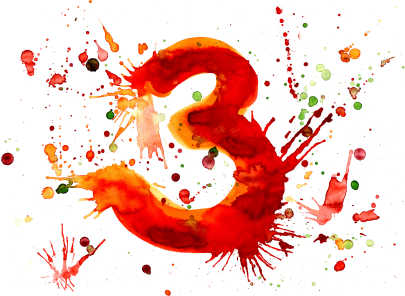
There are two Big-E words you will hear frequently during volatile times: “Economy,” as in “The Economy is going into a recession….” and “Everyone,” as in “Everyone has stopped spending money.”
Anytime we experience a collective downturn, some practitioners see a once-thriving practice that’s now squeezed by tight-fisted patients and insurance companies, while others thrive and expand — seemingly creating an economy of their own.
Master Alchemy and Create Your Own Economy
What if you could begin creating your own economy right now? When you stop and think about it, that’s what most of us are doing in small ways with the choices we make every day: we’re creating our own personal economies. There are those who restrict their actions when they hear even the faintest rumor of economic bad news – freezing any investment or risk in their business.
They’ll wait until someone else gives them the all-clear sign – and sure enough, they will be proven right — and these folks won’t see that all clear sign – until long after “everyone” else is well on the road to recovery.
Depending on how politically advantageous current economic conditions are to whoever’s in charge at the moment, they could be waiting for a long time. I’ll just throw this out there: if you’re using the state of the economy — local or global — as the measure for your own financial future, that seems pretty risky to me. Do guys in suits several thousands of miles away really have your best interests at heart? And what do they know about your practice, your clients or patients, your skills and ideas?
And then there are those who seem oblivious to the economic conditions around them and continue to produce, grow, thrive and prosper – no matter how bad “the economy” is.
What do these people know that others don’t?
I call these practitioners the Alchemists.
Writes Perry Marshall in one of his regular emails:
Intel makes chips out of sand, and Microsoft literally creates software out of thin air. Neither of them has to steal anything from anyone to do it, either.
It’s called alchemy, the creation of something out of nothing.
Wealth is not distributed, it’s created. We all have to be taught how to create wealth for ourselves. We must learn the art of alchemy. Alchemy is not a mere idea or construct. It’s reality. And a very liberating one, once you truly understand it.
Perry’s a master alchemist – and a great guy, too. If you’re interested in learning more about Google or Facebook advertising, I encourage you to read more on his blog.
How to Embrace Your Inner Alchemist
Maybe you’re building a bricks and mortar practice, or expanding your practice online.
If the Internet went dark tomorrow, or some cabal of bureaucrats decided it was politically expedient to declare we had entered into a collective depression, I’m confident the alchemists among us would continue to create new sources of income.
And as an alchemist, your business would continue to grow and thrive – so much so, you could invite other people along to prosper with you.
What are the alchemist’s principles?
- See Value
- Communicate Value
- Exchange Value
These principles have been effective for as long as there have been people with an urge to barter or buy. They worked when all our shopping was done at the local bazaar. They worked pre-Internet and will continue to work no matter what new medium comes along tomorrow.
And here’s the best part: These principles work independently of economies or the ups and downs of any single practice. The alchemist’s tools are portable.
Let’s look at these tools one at a time.
 1. See Value
1. See Value
This principle has two parts: seeing the value in yourself and seeing opportunities to create value by being aware of what others may need or want.
Even during the Great Depression, people found a way to make a living, and some people made fortunes. It continues to fascinate me that during every U.S. recession, more new small businesses are started than during the good times.
The people who thrive in any economy are those who see value where others don’t.
During the Depression, while others stood in breadlines, the value-creators found ingenious ways to feed their families and keep a roof over their own heads by meeting others’ needs. After all, even then people were still spending money: people still had to eat, needed somewhere to live, needed the staples, and still wanted to entertain themselves.
And this is the first alchemist’s skill you’ve got to nurture if you want to thrive online or anywhere else: See Value. Look for it, become aware of it. Take notice, and make notes when someone is providing a service in a unique way.
Value is anything that someone else would willingly pay for – a fair trade. This is not an objective measurement – one man’s trash is another man’s treasure. So, begin the practice of becoming aware of seeing things from another person’s point of view or you may dismiss your next golden opportunity as just another pile of trash.
Interestingly, it’s often your own talents, skills, and abilities that you most easily overlook. And that’s right where you’ve got to start.
- What do you do that has potential value to someone else?
- What needs do others have that aren’t being met?
 2. Communicate Value
2. Communicate Value
Clearly, even if you see value in something, you won’t be able to create economic alchemy from that unless another person sees that value, too. So the better able you are to communicate that value, the better the exchange.
It doesn’t matter if you’re looking for a job or selling pencils on the street corner: You’ve got to show another person how what you have to offer is of value to them.
You can have the most magical product that you know will solve a pressing problem or fill an urgent need and if your audience can’t recognize your offer as their solution – if they can’t instantly connect your answer to their question – you’re not going to sell anything.
As master-marketer Bill Schley writes:
“If you don’t sell in simple, story-telling language, no one buys your better mousetrap. If you don’t make me understand in the simplest, clearest terms “what is it and why do I need it,” and tell me every day, your message is being wasted and you’re not getting any credit. Dale Carnegie would say you’re communicating–but you’re not selling.”
Fortunately, this is an education you can begin acquiring online, largely free of charge. There are many great teachers with plenty of valuable content willing to give you an education in communicating value. One of the best resources to get you started is Copyblogger.com.
 3. Exchange Value
3. Exchange Value
This third step is where a lot of practitioners drop the ball. Maybe you have a product that provides genuine value, and you’ve figured out how to talk about that product so others can appreciate that value. Alas, when it comes time to “close the sale,” you stumble.
After all, what does selling anything really come down to? A sale is defined by the moment someone hands you his or her hard-earned cash in exchange for your product or service. You value their money and they value your product. In both minds, it has to be an equal exchange – or it’s not going to happen.
This might be obvious to you, but you’d be surprised how many people, especially when trying to sell online, neglect one of the two most essential parts of any exchange:
1) Getting in front of another person so you can offer a value exchange in the first place.
2) Executing the actual exchange itself – or – closing the sale.
Maybe you thought that simply building a website or posting memes on social media would help you avoid those dreaded ‘selling’ activities. But the truth is, one way or another, you have to take initiative at least twice: You have to make an offer, and then you have to ask for the exchange of value.
Alchemy is Your New Practice Security
You don’t have to be one of those professional doom-and-gloomers to recognize that the global economy may experience a sea change. The very definitions of education and work are changing. The nature of opportunity itself is morphing.
And yet, with all this change, follow these three principles, and you can make a living no matter what “the economy” or “everyone else” is doing.
These principles are very familiar to the natural entrepreneur. There are those among us who have always been naturally inclined to match value to needs and wants in innovative ways for profit.
And this is the beginning of a new age of work. In this age, everyone must become an alchemist-entrepreneur. Gone are the days when you could climb the ladder at one company for forty years and collect the now-mythical retirement gold watch.
Mastering these three principles could be your retirement backup plan: The ability to find, create, communicate, and exchange value in new ways – seemingly “from nothing.”
Like the modern alchemists, who transformed ordinary sand into the microchips powering the world’s computers, you can survive and thrive in any economy if you learn to turn what is invisible to others into something people will value and pay for.
Over to you . . .
Are you ready to embrace your inner alchemist? What does that look like for you?
What will you create today?
Where is the golden opportunity in your practice?
What one thing can you do next to apply these three principles of alchemy?
This is so true! I can remember the late 70s and again the late 80s. Both times, the economy took a dip, but there were people around who prospered anyhow. And not only that, but many companies that were in flat-out primetime in the 80s and 90s were started by people during those downturns: I distinctly remember Merry Maids was one; Penzey’s Spices, Chadwick’s of Boston, Crispy Creme Donuts, even Apple and Microsoft all got their starts during these hard times. The key was people willing to think outside the box, figure out something people needed but didn’t have, and put in the effort to make it reality.
I’ve started two different businesses during this time…really three. Nothing earth-shattering yet, but they’ve allowed my family to thrive while my spouse has been unemployed. Not that that is changing, I think we’ll be in great shape.
Tracey,
Hey, thanks for so perfectly demonstrating “alchemy.” (And it’s nice to know there’s some of us “old enough” to recall the late 70’s…)
Looking at your family situation, some would say you’re “lucky” that you have alchemy skills while your spouse is unemployed.
I say we make our own luck, we create our own opportunity.
And you’re proof.
Thanks for adding to the conversation, Tracey, I appreciate it.
Keith
Oops, that should be “NOW that that is changing”! He’s working again, which makes our family’s bottom line so much better. But mine did keep us afloat when there was nothing from him.
It’s really interesting that if you look at your talents with an eye on what you can do to help others, that’s where it all starts (your first point). Helping others. Not “how can I make money”, even though that’s part of it! Kind of like your site here.
Great post, great site!
Tracey,
Thanks for that clarification and good news, (and the compliments!)
I love your point: “…that’s where it all starts (your first point). Helping others. Not “how can I make money…”
Not enough people talk about this, and this (in my humble opinion) is the very definition of “entrepreneur.”
The people who win come to the table with great ideas and intention first, the cash is secondary.
Thanks again,
Keith
Yo Keith,
I love this, it’s crunchy-good. I am currently falling a bit short on the “exchange” step — hey, maybe that’s your next workshop?
But dude — I predict you’re gonna’ get some snarky emails on this one!
I can just *see* some poor outta’ work guy sitting out there thinking you’re telling him that you think his worry, pain and struggle is an “illusion.” I know what you mean….
More like this one, please!
Craig
Craig,
Thanks — I’ve received lots of email about this post, so far, so good.
Hmmm — you may have a point. I tried *really, really hard* to be nice in this one, but I always say if I’m not clear, hopefully somebody calls me on it and gives me the opportunity to clarify.
And just in case someone IS snarked, my official position: our RESPONSE to anything is always “real” — that’s about as “real” as anything gets, I would think?
It’s just I would hope that any of us feeling temporarily discouraged or sidetracked by life’s ups and downs would take a look at his or her neighbor and ask: “Is there something in their “reality” I could consider?”
IN the end, you’re right: The bigger our list grows, the better the odds I’m going to tick someone off. It’s (usually) unintended : -)
Keith
This is an extremely valuable way to break this down: I had honestly never thought of “marketing” or selling in this way. And yet, in my practice, this is what I do to get new patients. I really appreciate this article: I will re-read it this week and allow it to sink in.
Many thanks for your site!
iala
iala,
Thank you for your thoughtful comment – yes, you are right: these three steps are very “natural” to us, and yet a lot of us leave out one or more of them when it comes to “selling” ourselves or something close to us. Look for more articles breaking down this topic in the future.
Keith